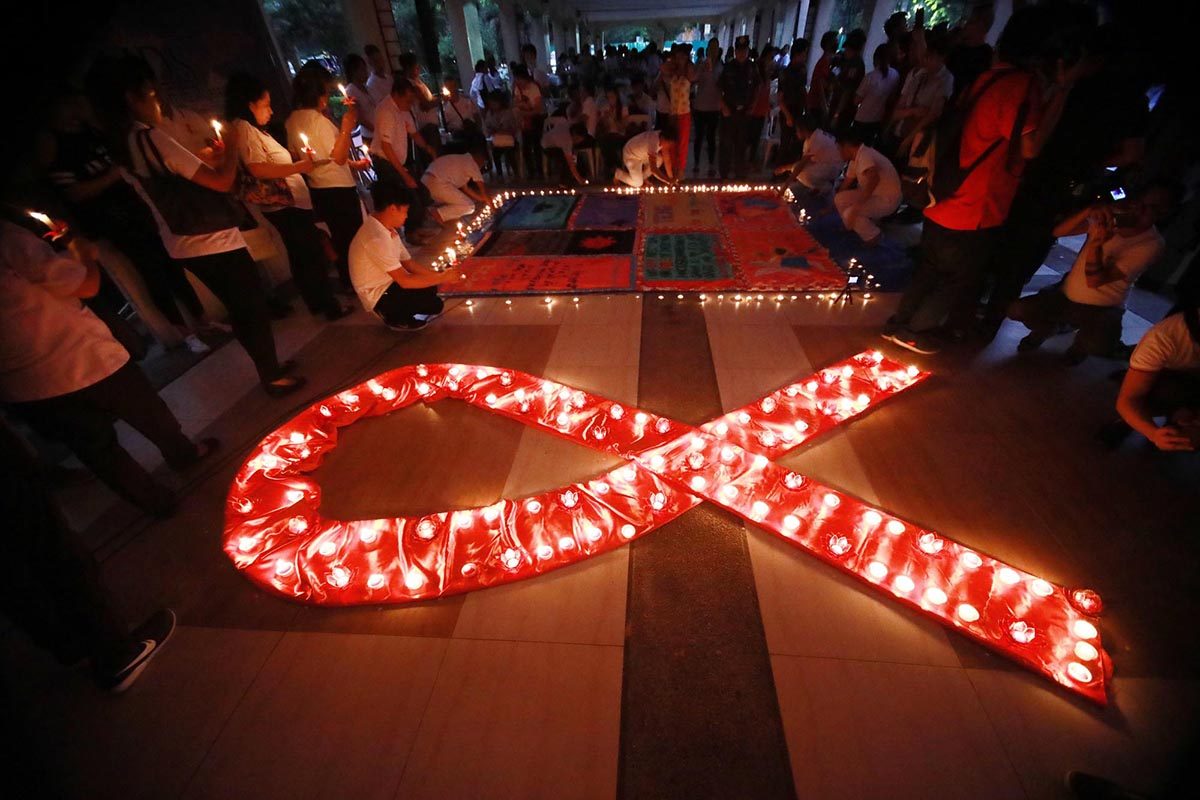SUMMARY
This is AI generated summarization, which may have errors. For context, always refer to the full article.


MANILA, Philippines (UPDATED) – President Rodrigo Duterte has signed into law a new policy that makes health services for HIV/AIDs (Human Immunodeficiency Virus Infection and Acquired Immune Deficiency Syndrome) more accessible to Filipinos.
Duterte signed the Philippine HIV and AIDS Policy Act of 2018 on December 20, 2018, Presidential Spokesman Salvador Panelo said on Wednesday, January 9.
The new law is also known as Republic Act No 11166, according to a copy of the signed law sent by Malacañang to media on Wednesday.
The new law repeals the 21-year-old “Philippine AIDS Prevention and Control Act of 1998” (Republic Act 8504) in order to replace it with strategies based on more current knowledge and experience in dealing with HIV/AIDS.
The law is a reconciliation of Senate Bill No 1390, authored by Senators Risa Hontiveros and Senate health committee chairman JV Ejercito; and House Bill No 6617 championed by Dinagat Representative Kaka Bag-ao, former Kabayan Representative, and former presidential spokesman Harry Roque, and others.
Under the law, the Philippine National AIDS Council (PNAC) is reconstituted and is put in charge of the country’s overall implementation of the AIDS Medium Term Plan, a 6-year plan to prevent and control the spread of HIV and AIDS.
It also orders the Department of Health to establish a program to provide free and accessible treatment and medication to all persons living with HIV and AIDS. Public and private hospitals are to become treatment hubs.
The Department of Social Welfare and Development, meanwhile, is to develop care and support programs for persons living with HIV and AIDS, which should include counseling, support, social protection, welfare assistance, among others.
Consent for HIV testing
Another major provision in the law allows minors 15 years to 17 years of age to give their own consent for taking an HIV test.
Any person below 15 who is pregnant, married, or in high-risk behavior should be considered a mature minor and be allowed to give their own consent for HIV testing.
Malacañang said the newly-signed law requires all government health facilities and workers to incorporate HIV/AIDS awareness and healthcare services in their programs.
“We laud our lawmakers including various stakeholders who immensely contributed to the passage of an updated legal framework addressing HIV and AIDS. This piece of landmark legislation will significantly reduce the stigma of people living with HIV or AIDS,” said Panelo.
The law strengthens policies to fight discrimination towards persons living with HIV and AIDS. For instance, it mandates HIV and AIDS education in the workplace.
“All public and private employers and employees, including members of the Armed Forces of the Philippines (AFP) and the Philippine National Police (PNP) shall be regularly rpvided with standardized basic information and instruction on HIV and AIDS, including on confidentiality in the workplace and reduction or elimination of stigma and discrimination,” reads its Section 16.
The passage of the law is critical given Department of Health (DOH) statistics that show the Philippines had the fastest growing HIV/AIDS epidemic in Asia-Pacific from 2010 to 2016.
The new HIV cases among Filipinos more than doubled from 4,300 in 2010 to 10,500 in 2016, according to the UNAIDS Report on global HIV epidemic states.
While the global trend in HIV incidents is declining, the Philippines is one of only 9 countries in the world that recorded a more than 25% increase in HIV incidence.
The DOH has recorded a total of 11,103 cases in 2017, which is higher than the 9,264 cases reported in 2016; 7,831 in 2015; 6,011 in 2014; 4,814 in 2013 and 3,338 in 2012. – Rappler.com
Add a comment
How does this make you feel?
There are no comments yet. Add your comment to start the conversation.